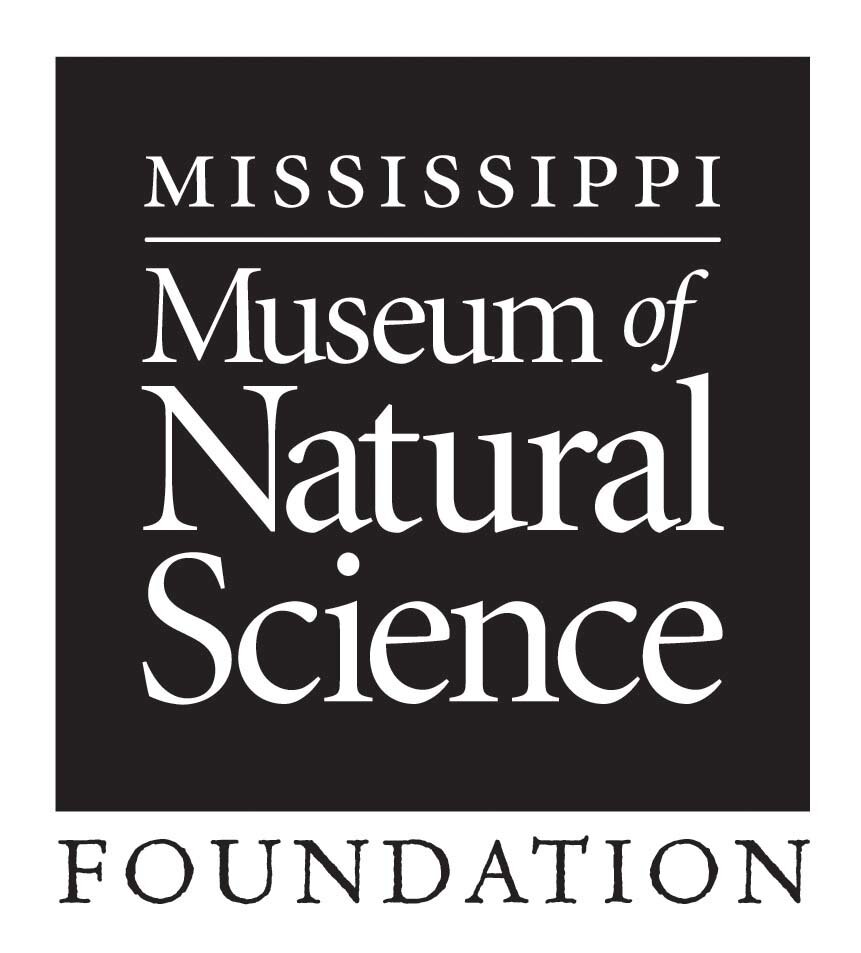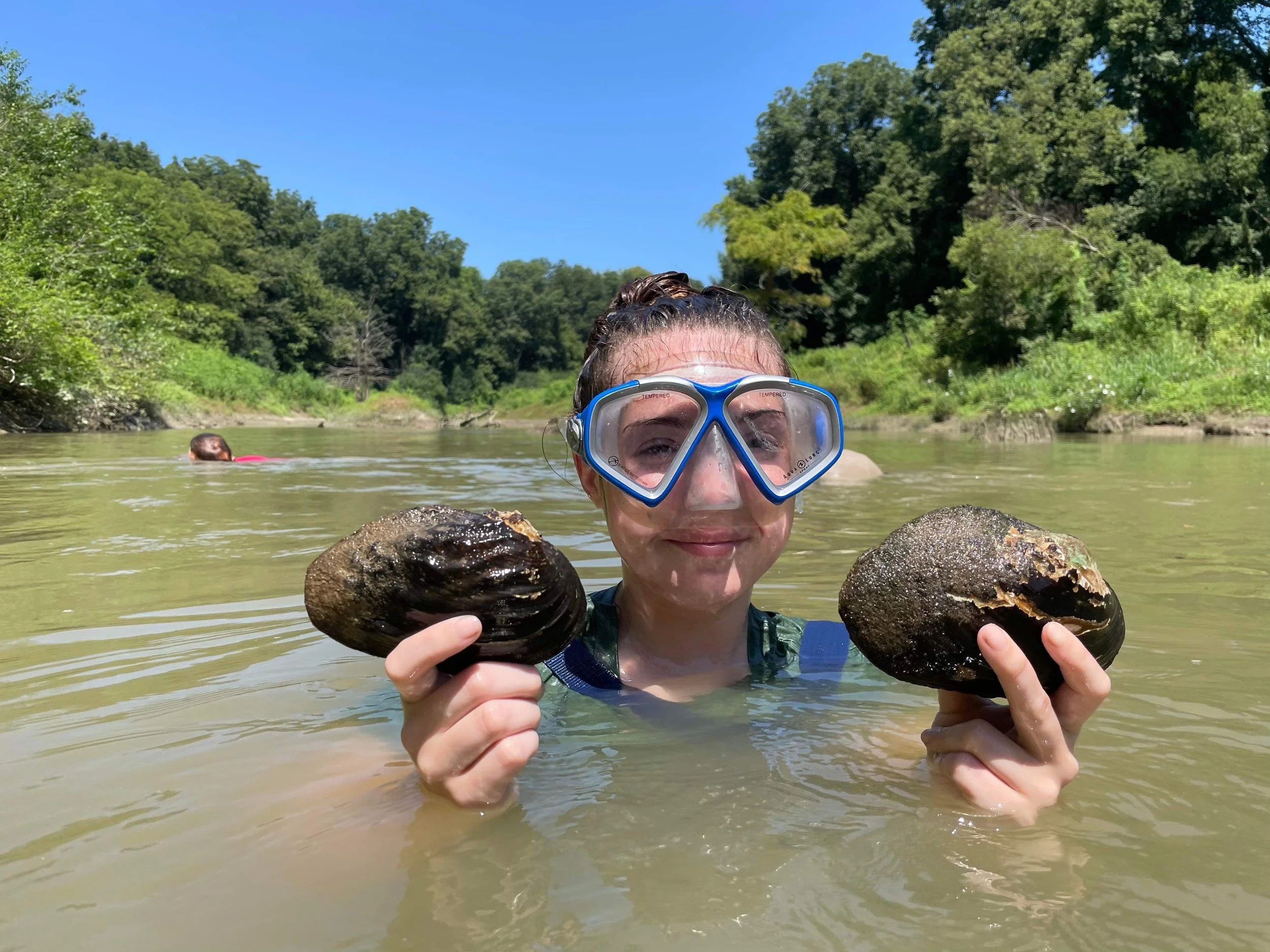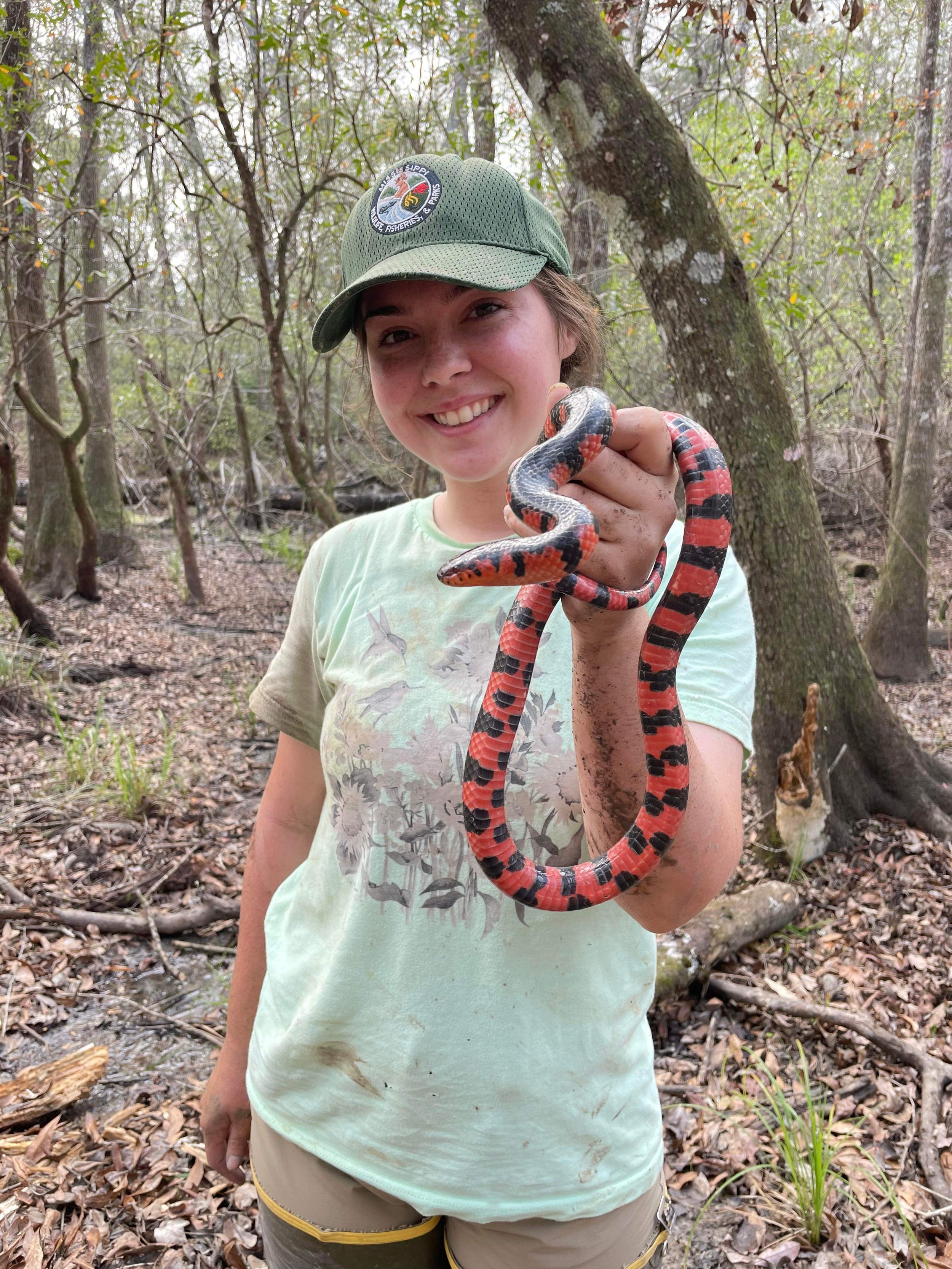Meet Marinee Humphries, one of our all-star environmental specialists helping protect Mississippi’s wild side! Whether she’s wading through wetlands, diving into species data, or helping museum guests connect with conservation, Marinee brings energy, expertise, and a love for the outdoors to everything she does. From freshwater mussels to bumblebees, her work is all about discovery, impact, and hands-on adventure. Read on to learn how this former nursing student found her true calling in conservation!
HOW LONG HAVE YOU WORKED FOR MDWFP’S MISSISSIPPI MUSEUM OF NATURAL SCIENCE?
Since May 2023.
WHAT’S YOUR WORKDAY LIKE?
My workday looks different depending on the day, or season. I get to tackle various tasks, which keep things exciting!
I recently got a promotion and now work with the Natural Heritage Program’s database to investigate and respond to environmental review requests through mapping to conserve Mississippi’s natural resources.
When I am not at my desk doing environmental reviews, I get to assist biologists with their research projects. Usually this means going outside and getting dirty. Honestly, it is the best part of the job as I get to put my hands on animals that some people may not think twice about.
I have had the pleasure of working with a variety of animals, including freshwater mussels, freshwater fish, aquatic snails, crayfish, reptiles, amphibians, and even bumblebees. The field work associated with these projects consists of setting traps, diving, working boat and backpack electroshockers, pulling seines, and taking measurements.
We typically have long days when field season approaches but time flies when you’re having fun!
There are other times that you can find me in the museum lab identifying specimens, organizing our collections, or even participating in museum events, getting to engage with the community.
ANY FUNNY WORK STORIES?
There are many funny work stories, so it’s hard to choose.
One that comes to mind happened last year during a Lacunicambarus crayfish survey. It was three of us and at this point of the project - we were just scouting for good sites to return to later. We were down near the coast, and this was day two of our work.
We were in a ditch next to a road when I spotted a freshly built chimney, which was few and far between at this site. Calvin, the state Astacologist, immediately got excited as he wanted to see what species was present there as well as show the volunteer a crayfish. As he started excavating the burrow, it did not take long for him to find the crayfish.
I should say the crayfish found Calvin because he made a noise, his hand shot out the burrow, and the crayfish went flying with it. Turns out he got pinched when he wasn’t expecting it, and it startled him. We heard the soft landing on the grass nearby and spent a couple of minutes looking for it.
Unfortunately, we never laid eyes on the crayfish itself, but we got a good laugh.
TELL US A BIT ABOUT YOUR BACKGROUND AND EDUCATION
I was born in Mississippi and grew up in Yazoo. I have four younger siblings. As a child, I always loved being outside. I would spend my time making mud pies, camping, fishing, playing in the creek, or going hunting with my dad. Being outdoors with my dad at a young age really made me appreciate the beauty of nature and the peace that comes with it. However, I did not realize that it could be a career option for me.
After I graduated high school, I went to Hinds Community College with the intention of eventually going to nursing school. After graduating, I transferred to Mississippi College with that same goal in mind. Things started to shift for me during my second semester at MC when I took a Herpetology course, and I fell in love with this field that I did not realize existed. Taking this course also allowed me to get over my fear of snakes.
At this same time, I was debating if nursing school was really my calling and ultimately decided it was not and shifted gears. I then got involved in my professor’s gray rat snake research which opened my eyes to a whole new world. I graduated from MC with a bachelor’s degree in biology and a minor in psychology.
I have a fiancé, Houston, and a husky named Bon. In my spare time I like to spend time with my family, draw, watch movies, play videogames, and of course I still love spending time outdoors.
WHY DID YOU CHOOSE THIS CAREER?
I chose this career because ultimately, I fell in love with it.
After taking my first herpetology course, I knew I needed to rethink my future. My professors at MC were a big support system for me and are ultimately the reason I am at the museum. They recognized my growing interest in conservation and informed me of the internship here at the museum.
After becoming an intern my feelings about this field were only validated and now, I have a career!
HOW DOES YOUR JOB CONTRIBUTE TO CONSERVATION?
My job contributes to conservation in a variety of ways.
When writing environmental reviews, I contribute to conservation by guiding developers and government agencies to avoid or mitigate impacts to species of concern, and by providing data that supports biological research and understanding of species.
When I am assisting biologists on their research projects, the data we collect is also important for our understanding of the species and listing decisions by USFWS.
I also help to organize and maintain our natural history collections that provide information on species in the state throughout history, which is a great resource for researchers and academics.
Finally, my job contributes to conservation by participating in outreach events by educating the public. Knowledge is important for conservation because we fear what we do not know or understand. Educating the community allows the public to gain a better understanding of environmental issues and allows them to become active participants in conservation efforts.
ANY ADVICE FOR A STUDENT INTERESTED IN A BIOLOGY OR MUSEUM CAREER?
There are so many routes that you can take with a biology degree so do not feel discouraged if one of those paths does not work for you.
I would also say to explore research and volunteer opportunities in your area for experience and to determine what you like to do.
The best advice I can give is to network, I would have never ended up in this career if it were not for the people that I have met along the way.





